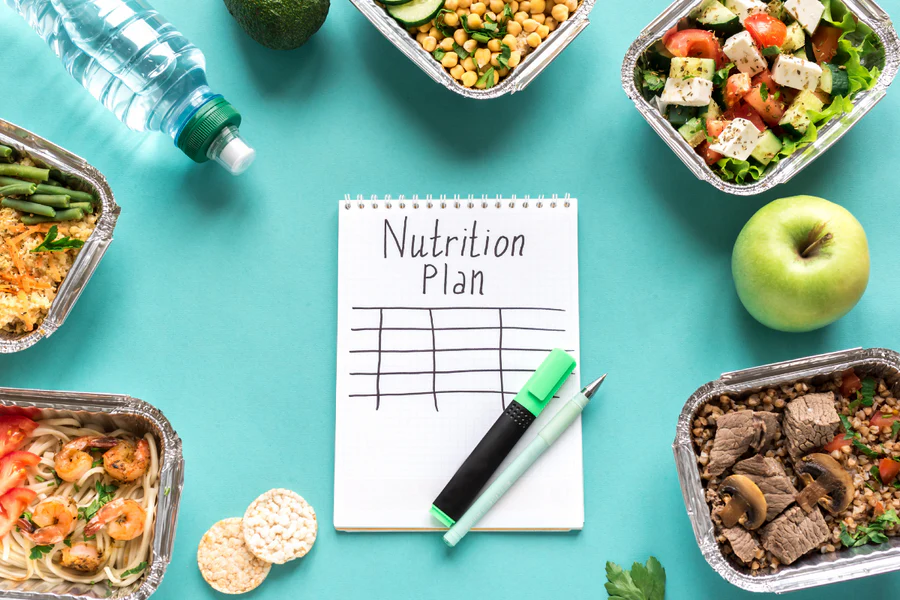Losing weight naturally without exercising might sound challenging, but it is entirely possible with the right lifestyle adjustments and dietary habits. Whether due to medical constraints, time limitations, or personal preferences, there are numerous effective strategies to help you shed pounds while staying off the treadmill. Below, we explore some of the best natural methods to achieve weight loss without breaking a sweat.
1. Focus on Mindful Eating
Mindful eating involves paying close attention to what, how, and when you eat. You can improve your body’s ability to recognize hunger and fullness signals by enjoying each bite, eating large meals, and avoiding distractions like TV or smartphones during meals. This habit enhances digestion and helps avoid overeating.
- Tip: Use smaller plates to encourage smaller portions and prevent over-serving yourself.
2. Increase Water Intake
Water is not only essential for hydration but also plays a vital role in weight management. You can feel satisfied and less likely to overeat if you have a glass of water before meals.
- Why it works: Studies suggest that drinking water can boost your metabolism temporarily by up to 30% for about an hour.
- Tip: Replace sugary beverages with water infused with lemon, cucumber, or mint for a refreshing, low-calorie alternative.
3. Prioritize Protein-Rich Foods
Incorporating more protein into your diet is an excellent way to reduce hunger and control cravings. Protein has a larger thermic effect than fats and carbs, digesting it causes your body to burn more calories.
- Best sources: Eggs, lean meats, legumes, nuts, and seeds.
- Tip: Start your day with a high-protein breakfast to curb hunger throughout the morning.
4. Eat More Fiber-Rich Foods
Fiber helps keep you full for longer and supports a healthy digestive system. It slows down the absorption of sugars and fats, stabilizing blood sugar levels and reducing cravings.
- Fiber-rich options: Whole grains, fruits, vegetables, beans, and flaxseeds.
- Tip: To add more fiber to your smoothies or yogurt, mix in a handful of chia seeds or oats.
5. Get Enough Sleep
Although often overlooked, sleep is essential for controlling weight. Poor sleep can disrupt hormones like ghrelin and leptin, which regulate hunger and satiety, leading to overeating and weight gain.
- What to do: Try to get 7 to 9 hours of good sleep each night. Establish a calming bedtime routine and keep electronic devices out of the bedroom.
6. Reduce Sugar and Processed Foods
Excessive sugar intake and highly processed foods are common culprits of weight gain. These items are often calorie-dense and low in nutrients, leading to frequent hunger and overeating.
- What to avoid: Sugary beverages, packaged snacks, fast food, and desserts.
- Tip: Opt for whole, minimally processed foods. When craving something sweet, choose fresh fruit instead of sugary treats.
7. Practice Portion Control
Portion control is a simple yet efficient approach to reducing your calorie intake without feeling deprived. Eating smaller meals allows you to prevent overeating while staying on track with your goals.
- How to start: Read food labels carefully and use measuring cups or a kitchen scale to monitor portions.
8. Avoid Late-Night Snacking
Eating late at night often leads to consuming extra calories that your body doesn’t need. Plus, hunger pangs from late-night meals are more difficult to burn off in the evening because your metabolism slows down.
- What to do: Set a cutoff time for eating, such as 7 or 8 PM, to avoid unnecessary calorie intake.
9. Manage Stress Levels
People who are under a lot of stress may turn to comfort foods that are high in fat and sugar as a form of emotional eating. Managing stress can significantly help in controlling unhealthy eating habits.
- Stress management techniques: Meditation, deep breathing, journaling, or engaging in hobbies.
- Tip: Healthy activities like herbal tea or a short walk can replace stress-inducing things.
10. Add Spices to Your Meals
Certain spices, such as turmeric, cinnamon, and cayenne pepper, may increase metabolism and reduce appetite.
- Why it works: Capsaicin in cayenne pepper is known to increase calorie burning temporarily.
- Tip: Sprinkle cinnamon on your oatmeal or coffee for added flavor and metabolic benefits.
11. Chew Food Thoroughly
Chewing your food thoroughly helps your body digest it better and allows your brain to register fullness. This small habit can reduce calorie intake over time.
- What to do: Try to chew each bite 20-30 times before swallowing.
12. Eat More Home-Cooked Meals
When you prepare your meals you can control the ingredients and quantities. Restaurant dishes often contain hidden sugars, fats, and extra calories.
- Tip: Plan your meals ahead of time and experiment with healthy recipes to make cooking enjoyable.
13. Monitor Your Eating Patterns
Keeping a food journal can help you identify eating habits and patterns contributing to weight gain. Keeping a food diary can help you become more aware and make better decisions.
- What to use: Apps like MyFitnessPal or a simple notebook for daily logging.
14. Try Natural Appetite Suppressants
Certain foods and beverages naturally suppress appetite, helping you feel fuller for longer.
- Examples: Green tea, apple cider vinegar diluted in water, and dark chocolate in moderation.
15. Build Healthy Social Support
Stay in the company of friends or family members who support you and encourage good eating habits. Joining online forums or groups focused on weight loss can also provide motivation and accountability.
Final Thoughts
Losing weight naturally without exercise requires consistency and dedication to healthier lifestyle choices. By adopting these strategies—mindful eating, prioritizing nutrient-dense foods, managing stress, and ensuring quality sleep—you can achieve sustainable weight loss while enhancing your overall well-being.
